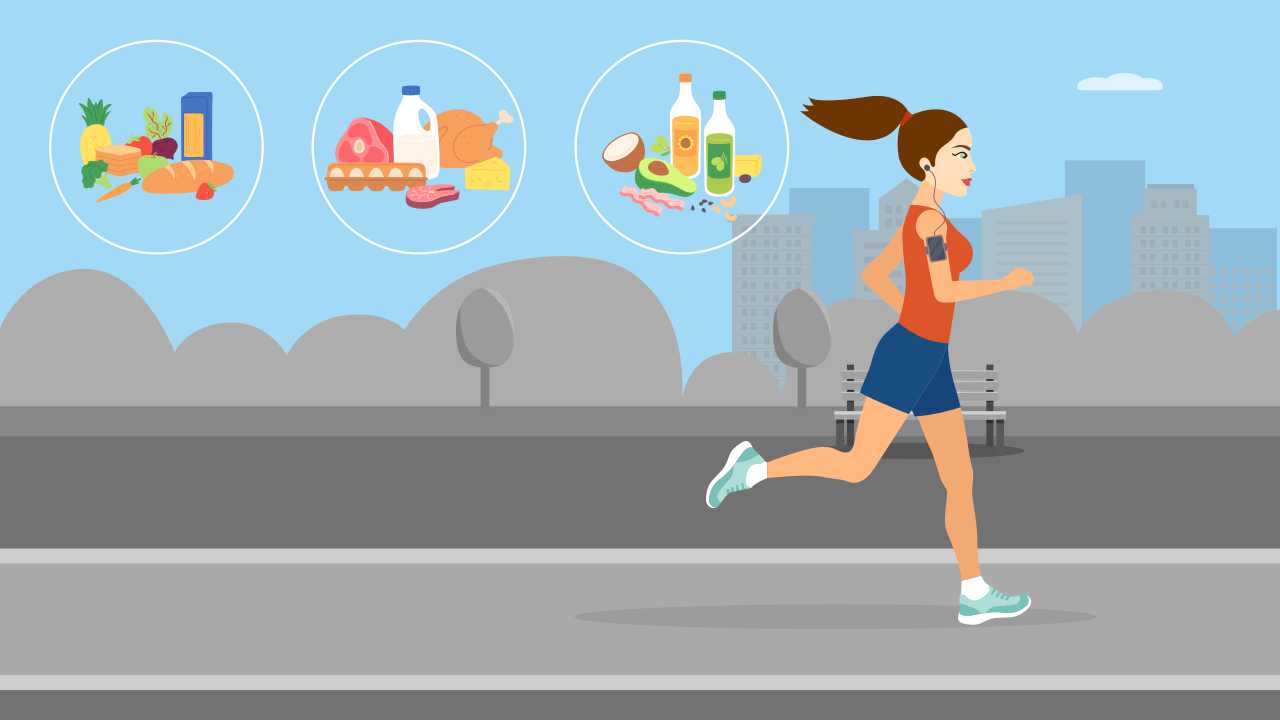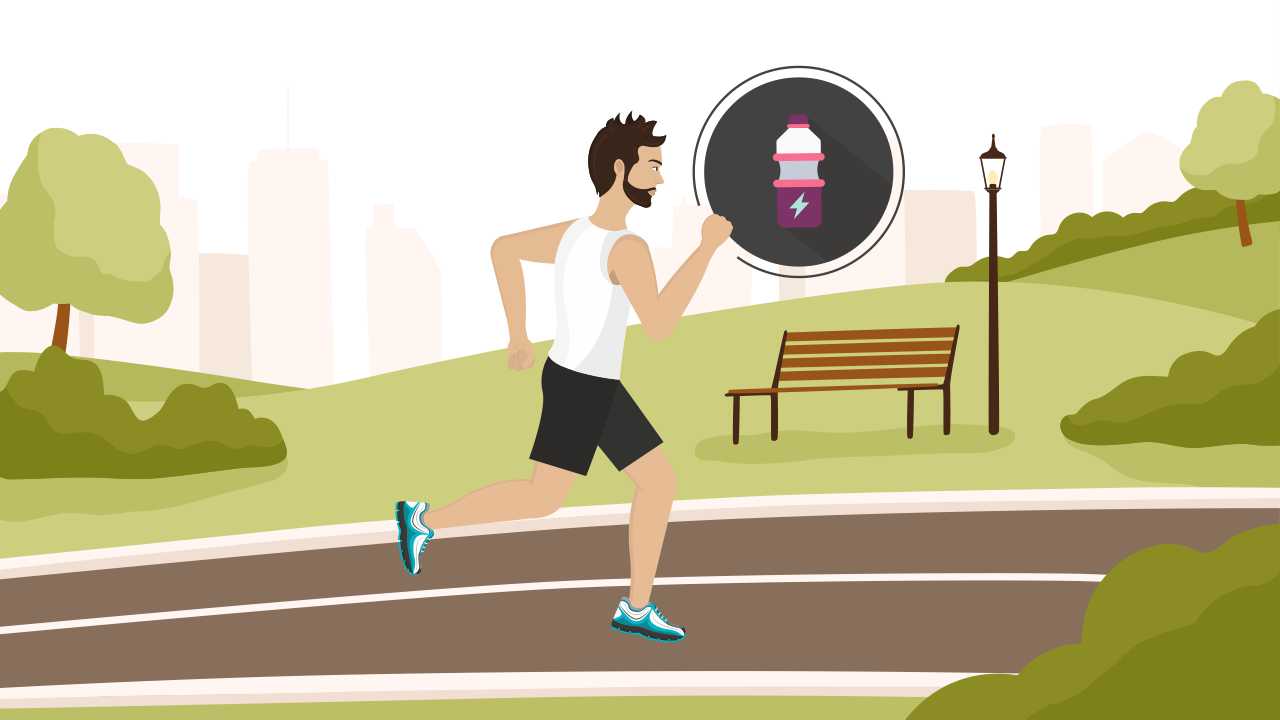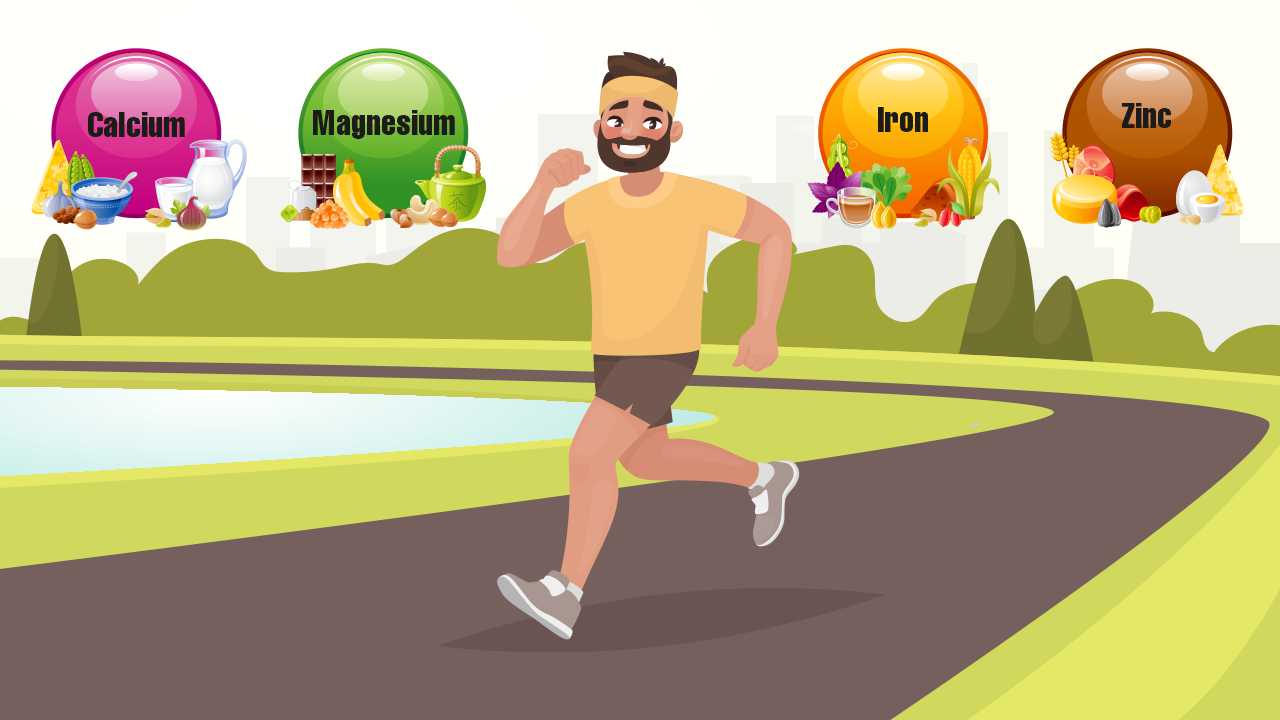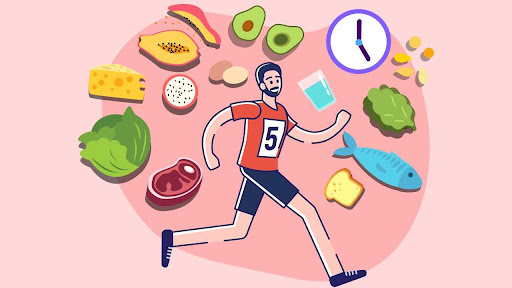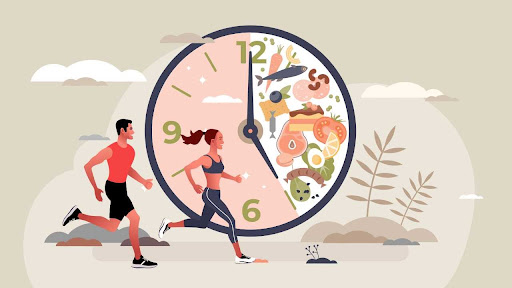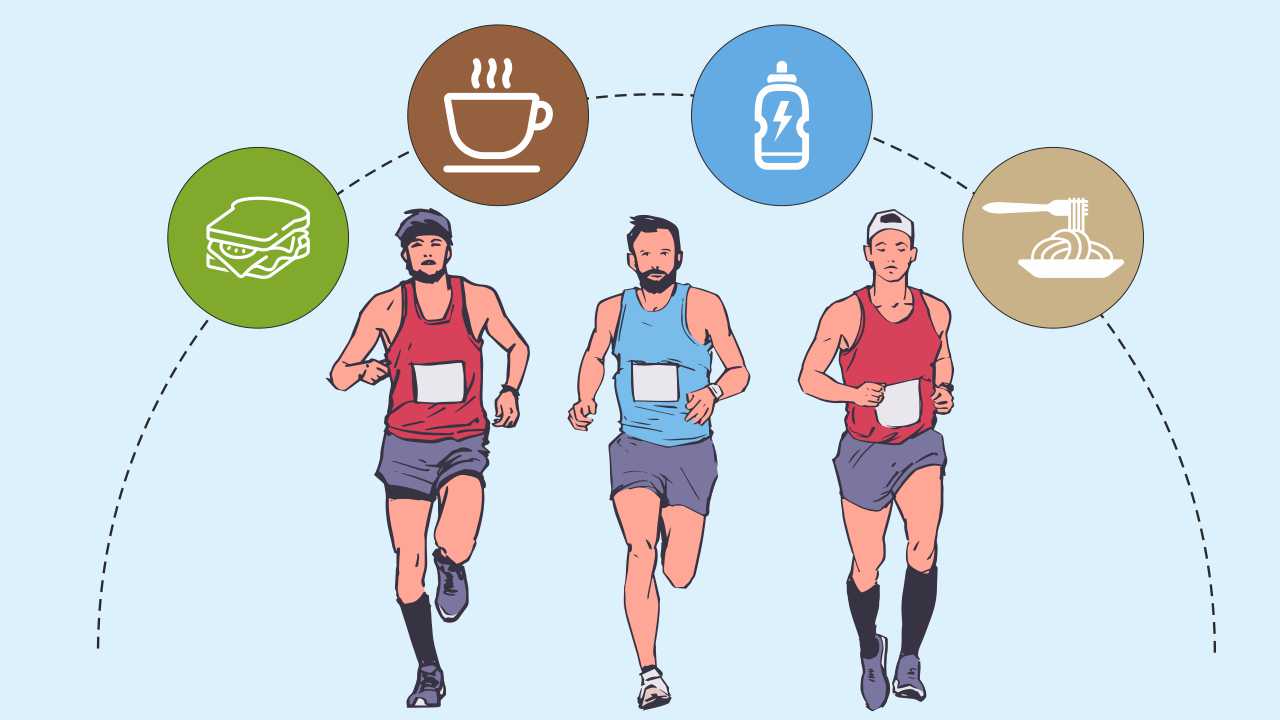
Nutrition for New Runners: Strategies to Make a Difference
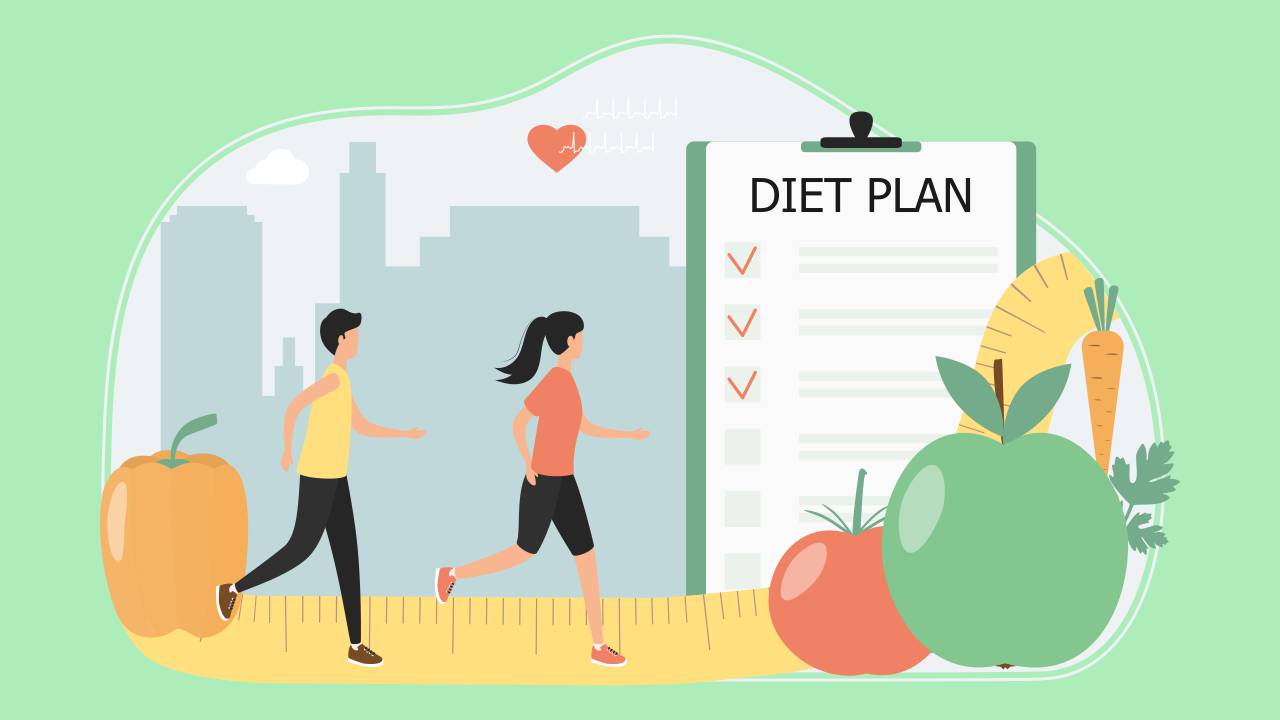
If you are all set to start your running journey, you may have wondered how your diet needs to be tweaked to meet your running demands. Let us explore some strategies you may adopt to ensure balanced nutrition as a runner.
Don’t skip meals
You may not need to increase your caloric intake immediately if you have just started running. According to the National Institute of Nutrition (NIN), the average calorie requirement for an adult woman ranges between 30kcal and 50kcal per kg of body weight. For men, it would range between 32kcal and 53kcal per kg of body weight.
For beginners, it is recommended that you improve nutrient quality and timing of your meals. You should avoid skipping meals as it may lead to bingeing later. Your appetite may naturally increase due to increased activity levels, so start by having all meals on time.
Fuel your body
Carbohydrates are called a runner’s best friend. Carbs are stored in your skeletal muscles and liver as glycogen, which is the fuel used during running. You may not need to specifically eat for a 90–minute run. The carbs stored in your body are enough to fuel you through this duration.
Right meal composition
As you advance as a runner, your activity level and exercise volume increase. The nutrition needs for runners change along with training intensity, your diet needs to change too. Energy, protein and carbohydrate requirements should be monitored to recover quickly and avoid injuries.
1. Carbohydrates
Carbs are important fuel, but this does not mean you start having more carbs. Anywhere between 50%–65% of your diet can be composed of carbohydrates. Complex carbs such as whole grains, pulses, and millets do not produce the sudden blood sugar variability like sugar and refined flours, so you will stay fuller for longer. New runners may see an increase in appetite. Therefore, it is essential to eat filling food to meet the demand.
2. Protein
Focus on ingesting at least 0.8g–1g per kg body weight per day. This may increase further as you progress as a runner. Most beginners do not even meet the minimum requirement of protein for healthy individuals as the focus on overall diet is usually low. Protein is essential for muscle building and repair. With increased activity levels, it is essential that you include good quality protein sources like whey, chicken, fish, eggs, milk, curds, soybean, and lentils (dal) in your diet, to meet the demands of your body.
3. Fat
Fat intake in a day needs to be no less than 20% of your total calorie intake. Therefore, if you consume a 2,000kcal diet, then fat should constitute at least 400kcal or 44gm (1g of fat=9kcal). Your body requires fat for various functions such as absorption of fat–soluble vitamins, insulation of vital organs and maintaining nerve function. So, fat intake should not be compromised.
Also watch: Nutrition for beginner runners
Hydration is key
As a general rule, it is important to be hydrated throughout the day for runners along with nutrition. Having 2.5–3 liters of water a day is a good start. This however, does not include hydration during your workout.
Begin with sipping water from the time you wake up. If possible, keep having water in between your training and especially after training. On days when training is extended or temperatures soar, you can add electrolytes like sodium, potassium, and chloride available in the form of electrolyte tabs, salt tabs, or oral rehydration solution (ORS) in your water bottle
While hydration during an endurance activity depends on weather conditions, a general guideline of ½–1 glass (120ml–250ml) of water every 15 minutes while running, may be ideal.
Nutrition for training
1. Pre-run
If you are just starting to run, having a meal immediately before may cause gastric distress and abdominal pain. So, for shorter runs of up to 60 to 90 minutes, you may run even on an empty stomach. A pre–workout snack at least 30 to 60 minutes before is also a good idea.
2. Post-run
It is important to recover and rehydrate after a run. Plan your post workout meal in advance and have it within two hours of finishing your training. As a beginner, you may focus on meals with protein and carbs; electrolytes may be met with salt added to your meals. Along with this, stay hydrated, limit consumption of fried foods, and those with added sugar and sodium.
Changing your diet may be overwhelming, but just take small steps. Here is a sample menu plan for a 65kg individual consuming a 2,000kcal diet.
Carb requirement = 250g (50% of daily caloric requirement)
Protein = 65g (1g/kg body weight)
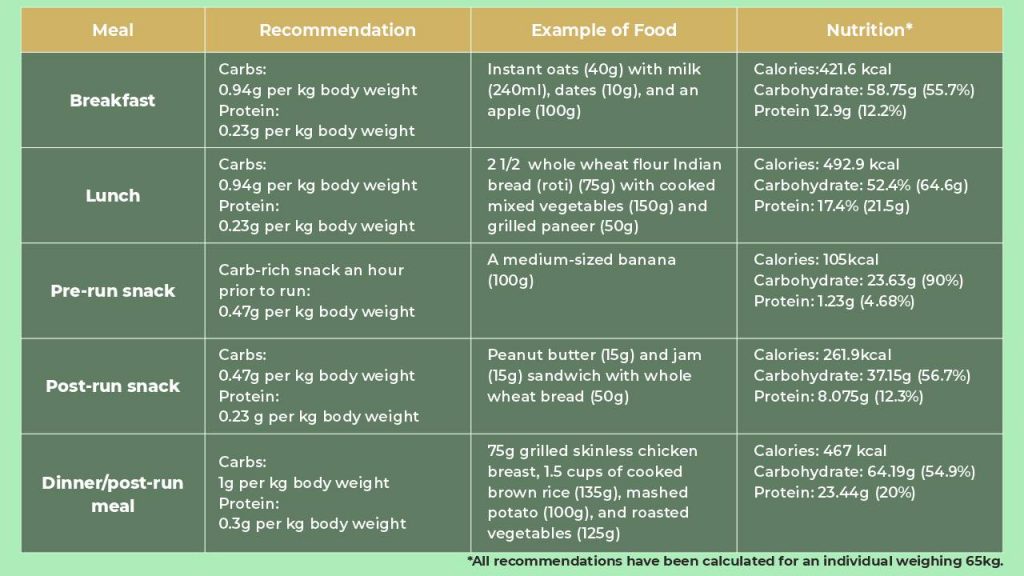
Need for supplements
You may not need to stock up on fueling gels or energy drinks in the beginning of your training, as it may lead to weight gain in case of ingestion of excess unplanned calories. Supplements are needed only when your diet is lacking in a particular nutrient or for performance-enhancing benefits. Whey or plant protein are good options for you to begin with, if your protein requirements are not met via diet. Remember, supplements should be taken only under expert supervision.
As you see, making these dietary changes are not that difficult. And it would pave your way for smooth and enjoyable runs, once you tweak your nutrition as a runner. So, when are you hitting the road?
References
1. Spriet, L., 2007. Regulation of Substrate Use During the Marathon. Sports Medicine, 37(4), pp.332-336.
2. Sjödin, B. and Svedenhag, J., 1985. Applied Physiology of Marathon Running. Sports Medicine, 2(2), pp.83-99.
3. Maughan, R. and Leiper, J., 1983. Aerobic capacity and fractional utilisation of aerobic capacity in elite and non-elite male and female marathon runners. European Journal of Applied Physiology and Occupational Physiology, 52(1), pp.80-87.


